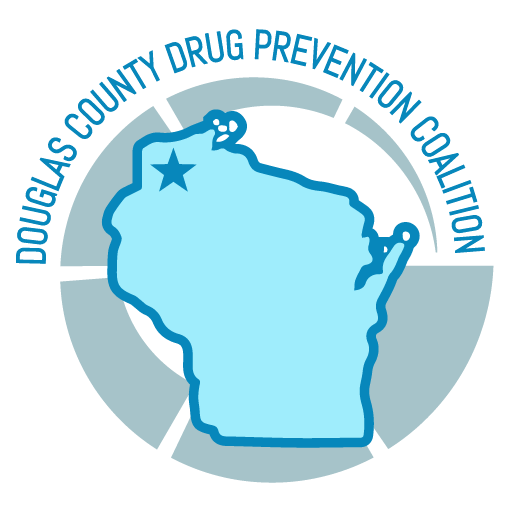Recovery Meetings: A Path to Healing and Hope
A Supportive Guide for Teens, Parents, and Families in Douglas County
You Don’t Have to Do This Alone
Recovery isn’t just about quitting drugs or alcohol—it’s about rebuilding a healthy, meaningful life. For teens and families in Douglas County, one of the most powerful tools in the recovery journey is community support through recovery meetings.
Whether you’re a teen trying to break free from substance use or a parent looking to support a loved one, this guide explains how recovery meetings work, what to expect, and why they’re one of the most hopeful places you can walk into.
Let’s explore how these safe spaces are helping real people—just like you—move forward every day.
What Are Recovery Meetings?
Recovery meetings are group gatherings where people come together to support one another in staying drug- and alcohol-free. These meetings create a space for:
Sharing experiences
Learning coping skills
Celebrating victories (big and small)
Building friendships
Finding hope
There’s no judgment, no pressure, and no need to have it all figured out. Whether it’s your first meeting or your 50th, you’re welcome.
Why They Matter: The Power of Connection
Addiction can feel incredibly isolating—but recovery is the opposite. It’s about connection, compassion, and community.
Studies show that people who regularly attend recovery meetings are more likely to stay clean and feel supported in their journey. For teens especially, having a place to talk openly, feel understood, and be part of a positive group can make all the difference.
Types of Recovery Meetings
There are many kinds of meetings, each with a slightly different style or focus. Here are some of the most common ones, including options specifically for teens and families:
1. Narcotics Anonymous (NA)
Open to anyone recovering from drug addiction.
Follows a 12-step format similar to AA.
Free to attend, no registration needed.
2. Alcoholics Anonymous (AA)
Focuses on recovery from alcohol addiction.
Also uses a 12-step format.
Available in most communities.
3. SMART Recovery
A science-based, non-12-step approach.
Focuses on self-empowerment, motivation, and building practical skills.
Great for people looking for a flexible format.
4. Alateen
Specifically for teens who have been affected by someone else’s substance use (like a parent or sibling).
Offers emotional support and tools for coping.
Safe space for sharing without shame.
5. Family and Parent Support Meetings
Al-Anon (for families of alcohol users)
Nar-Anon (for families of drug users)
These meetings offer guidance, education, and emotional relief for those supporting loved ones in recovery.
6. Teen-Focused Local Groups (Douglas County)
Peer recovery groups led by trained youth facilitators.
School or community-based programs.
Reach out to your school counselor or visit our [Douglas County Resources Page] for meeting schedules.
What Happens in a Meeting?
Walking into your first meeting can feel intimidating—but it doesn’t have to be. Here’s what to expect:
Welcome & Introductions – Most meetings start with a greeting and a quick intro to the group’s purpose.
Sharing Time – People take turns (voluntarily) talking about their week, challenges, or victories. No one is required to speak.
Readings or Topics – Some meetings read from recovery literature or focus on a particular topic, like “handling triggers” or “rebuilding trust.”
Support & Encouragement – Members may offer feedback, share similar experiences, or simply listen.
Closing – The meeting usually ends with a short closing statement or moment of reflection.
Meetings can last anywhere from 30 to 90 minutes. You can come late, leave early, or just sit and listen—whatever feels right for you.
FAQs: Teens and Recovery Meetings
“Do I have to talk?”
Nope. You’re always welcome to listen quietly. Sharing is optional, especially in your first few meetings.
“What if someone from my school sees me there?”
Most recovery meetings are confidential and respect everyone’s privacy. If you’re worried, consider attending a teen-only or virtual meeting.
“Do I have to believe in God to go to NA or AA?”
No. While 12-step programs mention a “higher power,” many people interpret this in their own way. Spiritual belief is not required.
“What if I mess up and relapse?”
You’re still welcome. Relapse is part of many people’s journey. Meetings are a place to start again without judgment.
Parent Perspective: How Meetings Help Families
As a parent, seeing your child struggle can feel heartbreaking—and overwhelming. You might feel confused, scared, or unsure how to help. That’s where family recovery meetings come in.
Here’s what parents often say after attending:
“I finally felt like someone understood me.”
“I learned how to support my child without enabling.”
“I met other parents who’d been through the same thing—and survived.”
Family meetings offer tools to:
Communicate more effectively
Set healthy boundaries
Manage your own stress and emotions
Support your teen in recovery without taking on the whole burden
Sometimes, attending a meeting yourself is the best way to show your teen that recovery is something you’re in together.
What Teens Say About Recovery Meetings
“At first I thought it would be weird, but after one meeting I felt so much lighter. People get it. I’m not alone.”
— Liam, 16
“I was nervous, but no one judged me. I started opening up after a few weeks. I actually look forward to it now.”
— Danielle, 17
“It’s the only place I can be totally honest. I’ve made real friends here.”
— Marcus, 15
Recovery meetings aren’t about punishment—they’re about healing. You don’t have to be “all better” to show up. You just have to show up.
Virtual and Online Meetings
Not ready to go in person? No problem. There are plenty of online recovery meetings designed for teens and families. These are easy to access via phone or video and often available every day of the week.
Look for:
NA and AA Zoom meetings (check local chapters or national sites)
SMART Recovery Teen & Young Adult meetings
Teen chat-based support groups
Alateen online meetings
Visit our [Douglas County Youth Resources] page for updated links and schedules.
Creating a Routine of Recovery
Attending one meeting is a great start—but real progress often comes with consistency. Here’s how to build recovery meetings into your weekly routine:
Start with 1–2 meetings per week
Try different types until you find your fit
Go with a friend or ask someone to join you
Take notes after meetings to reflect on what helped
Ask someone you trust to check in and keep you accountable
The more you show up, the more you’ll get out of it.
Recovery Milestones: Celebrating the Journey
Recovery meetings are also where we celebrate victories. Whether it’s one day or one year clean, every milestone matters.
Meetings may celebrate with:
Keytags or chips (common in NA/AA)
Round of applause or a hug
Sharing your story to inspire others
These moments are powerful. They remind everyone that change is possible and that you matter.
Local Recovery Meetings in Douglas County
Here are a few places where meetings may be available locally (always check for updated schedules):
Douglas County Youth & Family Services
Teen recovery groups
Family support circles
Local Churches and Community Centers
AA/NA meetings
SMART Recovery meetups
Parent support nights
School-Based Support Programs
Peer recovery programs
Counseling and group sessions
👉 Want to find a meeting near you? Visit our [Douglas County Recovery Resource Guide] or call our community helpline.
When to Seek Additional Help
While meetings are a powerful part of recovery, sometimes more intensive help is needed. Consider combining meetings with:
Counseling or therapy
Outpatient or inpatient treatment
Mentorship from a sober coach
Academic and family support plans
We’ll cover more about treatment programs in the next post, but for now, know this:
💬 If you or someone you love is still struggling, there is help—and there is hope.
Final Thoughts: Keep Coming Back
Recovery isn’t a straight line. It’s a journey—and recovery meetings are like trail markers that help you stay on the path.
You don’t have to be perfect. You don’t have to have all the answers. You just have to keep showing up.
In Douglas County, we believe in second chances, strong communities, and helping one another rise. Whether you’re a teen taking your first steps or a parent walking beside them, recovery meetings offer something priceless: belonging, support, and hope.
About Us
Serving all of Douglas County to provide education across the lifespan, improve community literacy about substance abuse and improve access to treatment for addiction.
- +(805) 498-4719
- Medplus@info.com
- 3421 Lesser Dr Newbury Park, CA 91320
Quick Links
About Us
Our Mission
Contact Us
Event Calendar
Success Stories
Projects
Dose of Reality
Drug Take Back
Small Talks
Tobacco is Changing
Recent news
- All Post
- Alcohol & Tobacco
- Drug Related Topics
- For Parents & Guardians
- For Youth



